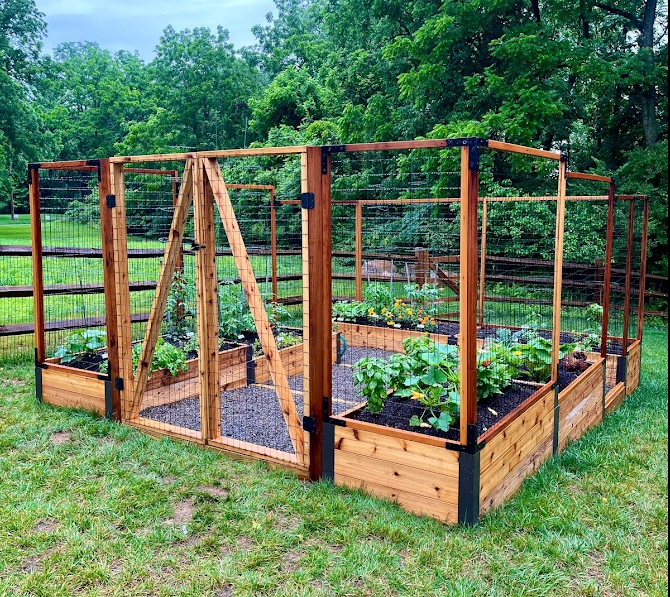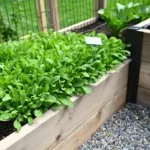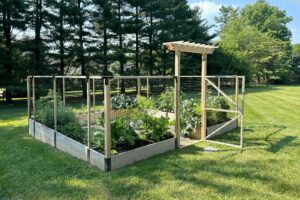
[et_pb_section fb_built=”1″ admin_label=”section” _builder_version=”4.27.0″ da_disable_devices=”off|off|off” global_colors_info=”{}” da_is_popup=”off” da_exit_intent=”off” da_has_close=”on” da_alt_close=”off” da_dark_close=”off” da_not_modal=”on” da_is_singular=”off” da_with_loader=”off” da_has_shadow=”on”][et_pb_row admin_label=”row” _builder_version=”4.16″ background_size=”initial” background_position=”top_left” background_repeat=”repeat” global_colors_info=”{}”][et_pb_column type=”4_4″ _builder_version=”4.16″ custom_padding=”|||” global_colors_info=”{}” custom_padding__hover=”|||”][et_pb_text _builder_version=”4.27.0″ _module_preset=”default” text_text_color=”#000000″ link_font=”|700|||on|||#000000|” link_text_color=”#000000″ header_2_line_height=”1.5em” hover_enabled=”0″ header_2_font_size_tablet=”” header_2_font_size_phone=”23px” header_2_font_size_last_edited=”on|phone” global_colors_info=”{}” sticky_enabled=”0″]
Introduction
Are you tired of deer or other pests devouring your garden? Whether you live in an urban environment, the suburbs, or a rural area, pests can be a persistent problem for home gardeners. Animals nibbling on your plants or digging up your beds can undo all your hard work. While various pest control methods exist, fencing is one of the most effective ways to protect your garden from critters.
Deer and groundhogs are among the most destructive pests for home gardens. Let’s take a closer look at how each can damage your plants and why fencing is a crucial solution.
[/et_pb_text][et_pb_text _builder_version=”4.27.0″ _module_preset=”default” text_text_color=”#000000″ link_font=”|700|||on|||#000000|” link_text_color=”#000000″ header_2_line_height=”1.5em” header_2_font_size_tablet=”” header_2_font_size_phone=”23px” header_2_font_size_last_edited=”on|phone” global_colors_info=”{}”]
Deer Damage in Gardens
Deer can destroy your garden overnight, eating plants down to their stems. Common signs of deer activity include nibbled leaves, hoof prints, and droppings. Since deer are most active at dawn and dusk, they may slip by unnoticed until the damage is done. Though deer can jump high, they tend to avoid small, enclosed spaces where they can’t land easily. A 5-6 foot tall fence around your raised bed garden can effectively prevent deer from getting in. While repellents can offer some help, they aren’t foolproof and don’t provide the physical barrier that fencing does.
[/et_pb_text][et_pb_image src=”https://backyard-eats.com/wp-content/uploads/2024/09/pexels-jim-fawns-231491-756758.jpg” title_text=”pexels-jim-fawns-231491-756758″ show_bottom_space=”off” _builder_version=”4.27.0″ _module_preset=”default” custom_margin=”20px||20px||true|false” global_colors_info=”{}”][/et_pb_image][et_pb_text _builder_version=”4.27.0″ _module_preset=”default” global_colors_info=”{}”]
Photo by Jim Fawns on Unsplash
[/et_pb_text][et_pb_text _builder_version=”4.27.0″ _module_preset=”default” text_text_color=”#000000″ link_font=”|700|||on|||#000000|” link_text_color=”#000000″ header_2_line_height=”1.5em” header_2_font_size_tablet=”” header_2_font_size_phone=”23px” header_2_font_size_last_edited=”on|phone” global_colors_info=”{}”]
Groundhog Digging in Beds
Groundhogs are notorious for eating leafy greens and vegetables. These skilled diggers can burrow quickly and cause significant damage to garden beds. If you find burrow entrances or chewed plants, a groundhog is likely the culprit. In addition to burrowing, groundhogs are excellent climbers and can scale fences over 4 feet tall. A sturdy 5-6 foot fence with a solid border—whether a raised bed or buried fence—helps deter groundhogs more effectively than repellents alone.
[/et_pb_text][et_pb_text _builder_version=”4.27.0″ _module_preset=”default” text_text_color=”#000000″ link_font=”|700|||on|||#000000|” link_text_color=”#000000″ header_2_line_height=”1.5em” hover_enabled=”0″ header_2_font_size_tablet=”” header_2_font_size_phone=”23px” header_2_font_size_last_edited=”on|phone” global_colors_info=”{}” sticky_enabled=”0″]
Our Garden Fencing Design
The design of your garden impacts the effectiveness of your fence. Whether you’re protecting a sprawling vegetable garden or a few raised beds, an integrated fencing solution can offer long-term protection.
For raised bed gardens, integrating fencing directly into the bed’s structure boosts both protection and durability. As mentioned, deer are unlikely to jump into enclosed spaces without easy landing room, making integrated fences effective compared to fences that encompass a very large property. Our fencing systems use metal hardware for strong connections between the beds and fence, along with wood supports and metal mesh. The result is a streamlined design that looks polished and holds up well over time.
[/et_pb_text][et_pb_image src=”https://backyard-eats.com/wp-content/uploads/2024/09/18_-cedar-w_-panel-fence.png” title_text=”18_ cedar w_ panel fence” show_bottom_space=”off” _builder_version=”4.27.0″ _module_preset=”default” custom_margin=”20px||20px||true|false” global_colors_info=”{}”][/et_pb_image][et_pb_text _builder_version=”4.27.0″ _module_preset=”default” text_text_color=”#000000″ link_font=”|700|||on|||#000000|” link_text_color=”#000000″ header_2_line_height=”1.5em” header_2_font_size_tablet=”” header_2_font_size_phone=”23px” header_2_font_size_last_edited=”on|phone” global_colors_info=”{}”]
Additional Benefits of Garden Fencing
Beyond pest control, integrated fencing offers several other advantages.
[/et_pb_text][et_pb_text _builder_version=”4.27.0″ _module_preset=”default” text_text_color=”#000000″ link_font=”|700|||on|||#000000|” link_text_color=”#000000″ header_2_line_height=”1.5em” hover_enabled=”0″ header_2_font_size_tablet=”” header_2_font_size_phone=”23px” header_2_font_size_last_edited=”on|phone” global_colors_info=”{}” sticky_enabled=”0″]
Less Maintenance
Building fencing directly into raised beds eliminates the gaps and hard-to-reach spaces where weeds often grow. Detached fences often leave room for weeds to thrive, creating more work for you in terms of upkeep. Integrated designs reduce the need for constant maintenance, giving you more time to enjoy your garden.
[/et_pb_text][et_pb_text _builder_version=”4.27.0″ _module_preset=”default” text_text_color=”#000000″ link_font=”|700|||on|||#000000|” link_text_color=”#000000″ header_2_line_height=”1.5em” hover_enabled=”0″ header_2_font_size_tablet=”” header_2_font_size_phone=”23px” header_2_font_size_last_edited=”on|phone” global_colors_info=”{}” sticky_enabled=”0″]
Support for Vining Plants
Another key benefit of garden fencing is its ability to double as a trellis. Sturdy fencing can support vining plants like cucumbers, beans, and peas, allowing you to maximize vertical space. For home gardeners with limited room, this can make all the difference in how much you can grow. Vertical gardening not only saves space but also improves air circulation around plants, reducing the risk of disease.
[/et_pb_text][et_pb_image src=”https://backyard-eats.com/wp-content/uploads/2024/06/3-2.jpg” title_text=”3″ show_bottom_space=”off” _builder_version=”4.27.0″ _module_preset=”default” custom_margin=”20px||20px||true|false” global_colors_info=”{}”][/et_pb_image][et_pb_text _builder_version=”4.27.0″ _module_preset=”default” text_text_color=”#000000″ link_font=”|700|||on|||#000000|” link_text_color=”#000000″ header_2_line_height=”1.5em” header_2_font_size_tablet=”” header_2_font_size_phone=”23px” header_2_font_size_last_edited=”on|phone” global_colors_info=”{}”]
Use Mesh for Visibility
If you’re concerned about blocking your view, don’t worry. Metal mesh fencing is transparent, so you can still see what’s growing. This lets you monitor your plants from a distance and even spot ripe vegetables from inside your home. Imagine looking out your kitchen window and noticing a bright red tomato ready for picking!
[/et_pb_text][et_pb_text _builder_version=”4.27.0″ _module_preset=”default” text_text_color=”#000000″ link_font=”|700|||on|||#000000|” link_text_color=”#000000″ header_2_line_height=”1.5em” header_2_font_size_tablet=”” header_2_font_size_phone=”23px” header_2_font_size_last_edited=”on|phone” global_colors_info=”{}”]
Why Choose Pest-Proof Fencing?
Creating a pest-proof garden isn’t just about keeping animals away—it’s about making your gardening experience easier and more productive. Without the constant threat of deer and groundhogs, your plants can thrive without needing constant replanting or repair. An integrated fencing solution helps you maintain a clean, efficient garden space, saving time and energy for more enjoyable aspects of gardening like harvesting and planting.
[/et_pb_text][et_pb_text _builder_version=”4.27.0″ _module_preset=”default” text_text_color=”#000000″ link_font=”|700|||on|||#000000|” link_text_color=”#000000″ header_2_line_height=”1.5em” hover_enabled=”0″ header_2_font_size_tablet=”” header_2_font_size_phone=”23px” header_2_font_size_last_edited=”on|phone” global_colors_info=”{}” sticky_enabled=”0″]
Conclusion
Are you ready to protect your garden from pests and boost your productivity? Our sturdy, integrated garden fencing offers a streamlined solution that combines pest control, reduced maintenance, and extra support for vining plants. Contact us today to book a consultation with one of our garden designers and start building your perfect pest-proof garden. Be sure to sign up for our newsletter for more gardening tips and advice!
[/et_pb_text][et_pb_button button_url=”@ET-DC@eyJkeW5hbWljIjp0cnVlLCJjb250ZW50IjoicG9zdF9saW5rX3VybF9wYWdlIiwic2V0dGluZ3MiOnsicG9zdF9pZCI6IjU4MjY0In19@” url_new_window=”on” button_text=”BOOK A CONSULTATION” button_alignment=”left” button_alignment_tablet=”left” button_alignment_phone=”left” button_alignment_last_edited=”on|tablet” disabled_on=”off|off|off” _builder_version=”4.27.0″ _dynamic_attributes=”button_url” _module_preset=”737bea5a-e063-4b24-af3f-21ce28f0bf38″ button_bg_color=”gcid-3b5ac83a-684c-4379-a559-60b2aa9e8157″ button_border_color=”gcid-3b5ac83a-684c-4379-a559-60b2aa9e8157″ button_letter_spacing=”1px” button_font=”Roboto|700||on|||||” z_index=”90″ custom_margin=”0px|0px|30px|0px|false|false” custom_margin_tablet=”0px|0px|0px|0px|false|false” custom_margin_phone=”0px|0px|0px|0px|false|false” custom_margin_last_edited=”on|desktop” locked=”off” global_colors_info=”{%22gcid-3b5ac83a-684c-4379-a559-60b2aa9e8157%22:%91%22button_border_color__hover%22,%22button_bg_color%22,%22button_border_color%22%93}” button_text_color__hover_enabled=”on|hover” button_text_color__hover=”#844B67″ button_bg_enable_color__hover=”on” button_border_color__hover=”#88667b” button_border_color__hover_enabled=”on|desktop”][/et_pb_button][/et_pb_column][/et_pb_row][/et_pb_section]






